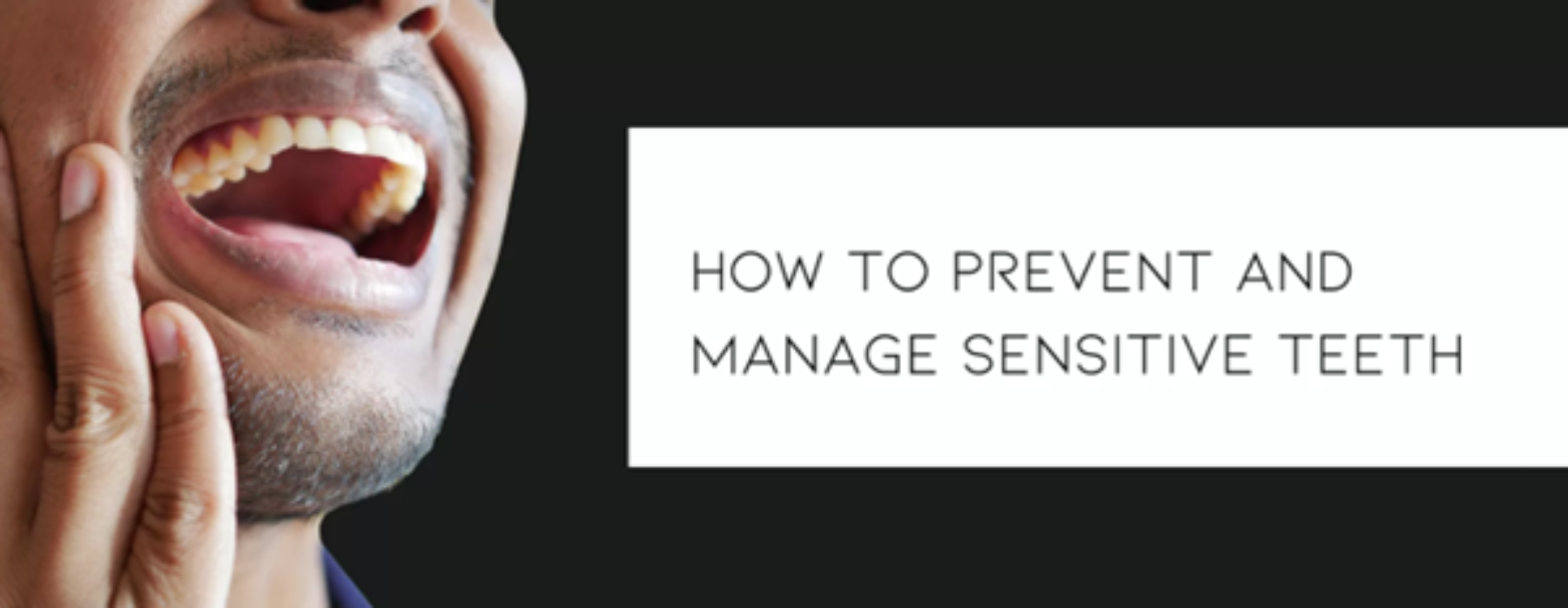How to prevent & manage sensitive teeth
- Home
- /
- Blog
- /
- Dental Advice
- /
- How to prevent & manage sensitive teeth
Sensitive teeth can be a nagging and uncomfortable issue for many people. It's a common condition that occurs when the enamel on your teeth wears down or when your gums recede, exposing the underlying dentin layer. Fortunately, there are steps you can take to prevent and manage sensitive teeth. In this guide, we'll explore some effective strategies that can help you maintain a healthy smile.

Sensitive teeth can be a nagging and uncomfortable issue for many people. It’s a common condition that occurs when the enamel on your teeth wears down or when your gums recede, exposing the underlying dentin layer. Fortunately, there are steps you can take to prevent and manage sensitive teeth. In this guide, we’ll explore some effective strategies that can help you maintain a healthy smile.
One of the most crucial steps in preventing sensitive teeth is using the right toothpaste. Opt for a fluoride toothpaste containing at least 1350ppm (parts per million) of fluoride. This information should be clearly labelled on the tube. Additionally, consider using a toothpaste specially designed for sensitive teeth. These toothpastes are formulated to provide relief from sensitivity by blocking the tubules in the dentin, which transmit pain signals to the nerves.
The way you brush your teeth can significantly impact their sensitivity. Use small, circular movements with a soft to medium-bristled brush, and try to avoid brushing from side to side. Gentle brushing helps to effectively clean your teeth without causing further enamel wear or gum recession.
Toothbrushes wear out over time, and using a worn-out brush can be less effective in cleaning your teeth. Change your toothbrush every two to three months or sooner if the bristles become frayed or worn. A fresh toothbrush ensures that you’re getting the best clean possible.
While it might be tempting to brush your teeth right after a meal, it’s best to wait at least an hour. Some foods and drinks, especially those high in acidity, can soften the enamel of your teeth. Brushing immediately after consuming them can lead to further enamel erosion.
Diet plays a significant role in maintaining dental health. Try to limit your consumption of sugary foods and acidic or fizzy drinks to mealtimes. This reduces the exposure of your teeth to harmful substances, giving your enamel a chance to recover.
Teeth grinding, also known as bruxism, can contribute to tooth sensitivity. If you grind your teeth, consider speaking with your dental team about the possibility of having a custom-made mouthguard. Wearing a mouthguard at night can help protect your teeth from the damaging effects of grinding.
Sensitive teeth can be a bothersome issue, but with the right strategies, you can prevent and manage this condition effectively. By using the proper toothpaste, brushing technique, and taking other proactive steps, you can enjoy a healthy, pain-free smile. Remember to consult with your dental team if you experience persistent sensitivity or have specific concerns about your dental health. Taking proactive steps today can lead to a brighter, more comfortable tomorrow.
Back to Blog